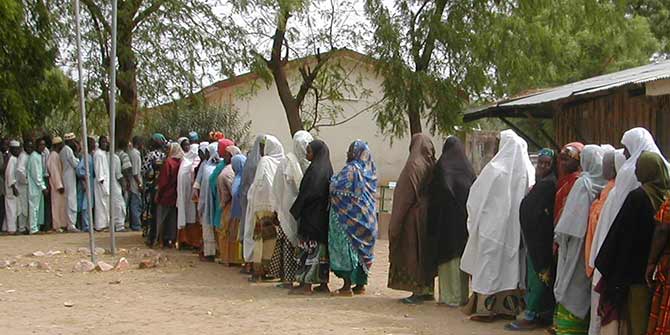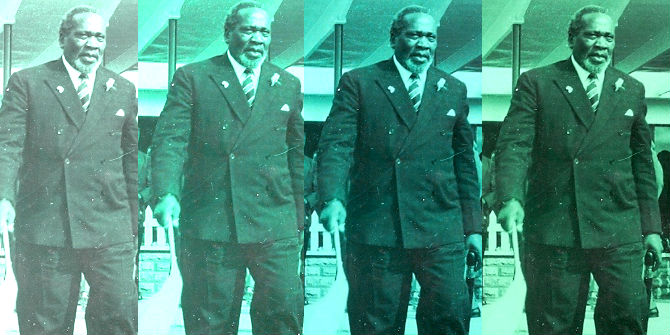LSE’s Wendy Willems and Ebenezer Obadare of the University of Kansas pay tribute to Professor Patrick Chabal, an eminent scholar in the field of African Studies.
With the passing on 16 January 2014 of Professor Patrick Chabal, the intellectual world has lost one of the most influential voices in the fields of African Studies, postcolonial studies and political science over the past twenty-five years. Dr. Chabal, until his untimely death, was Professor of African History and Politics at King’s College, London.
 At different times in the course of a stellar academic career, he was a member of the prestigious Institute for Advanced Study at Princeton University, New Jersey, and Visiting Professor to a slew of academic and research institutions scattered across the world, including South Africa, Italy, France, Switzerland, India, Portugal, and South Africa.
At different times in the course of a stellar academic career, he was a member of the prestigious Institute for Advanced Study at Princeton University, New Jersey, and Visiting Professor to a slew of academic and research institutions scattered across the world, including South Africa, Italy, France, Switzerland, India, Portugal, and South Africa.
Professor Chabal’s research interests lay at the crossroads of identity, culture and politics in postcolonial African states, subjects that he wrote about with his trademark mix of delicacy and brio. An unusually perspicacious writer, Professor Chabal courted controversy very easily. His take on the cultural aspects of politics, for instance, set many academic teeth on edge. But Chabal did not become a scholar in order to make friends. He was a seeker whose unstinting aim was to unravel the mystery of persistent political dysfunction in post-independence Africa.
This he did in the course of an astonishingly prolific career (178 publications at the last count) in which he tried, successfully in many cases, to rewrite the ground rules of scholarship on Africa. In his influential book Africa Works: Disorder as Political Instrument (James Currey, 1999), co-authored with Jean-Pascal Daloz, Chabal used the relation between the postcolonial state and informal governance structures to bring about a new understanding of the way in which an ethos of informality drives state-society interactions across the postcolony. In Africa: the Politics of Suffering and Smiling (Zed, 2009) he proposed an approach to African politics grounded in the everyday life of its people instead of being narrated through the contributions of the continent’s ‘Big Men’. His commitment to understanding processes of ‘social change actually taking place’ (Chabal 2009: 11), an important conceptualisation of agency on the continent, led to a new quest for modes of resistance emerging from unlikely spaces; thematics not taken seriously in a consistent manner in the field of African Studies. In The End of Conceit: Western Rationality after Postcolonialism (Zed, 2012), Chabal engaged with the politics of knowledge production and the so-called ‘rise of the global South,’ arguing that emergent power shifts between ‘the West and the rest’ are indicative of the growing inadequacy of Western social thought to the task of understanding itself and its future.
We were extremely honoured when Patrick (the way he insisted on being addressed) graciously agreed in June 2013 to contribute, at relatively short notice, a preface to our forthcoming edited collection Civic Agency in Africa: Arts of Resistance in the 21st Century (James Currey, 2014). We are extremely saddened that his foreword will now be published posthumously. As our book is quite literally in press, we wish to put on record our appreciation of his generosity and friendliness.
We met Patrick only once, during the AEGIS/European Conference on African Studies (ECAS) in Lisbon, Portugal, in June 2013, and when we thanked him personally for his generosity with his time, he brushed aside the compliment, replying that he was happy that ‘the book engaged with debates that he was really interested in’. This was only half-true of course; the whole truth is that Patrick was a scholar of distinction who always managed to create time for younger colleagues.
He will be remembered for his uncharacteristic humility, his profound commitment to intellectual debate, and his dedication to the African continent, not as a place filled with ‘raw data,’ but a space from which we can begin to theorise world politics in general.
We would like to express our sincere condolences to Patrick’s family, friends and colleagues.






RIP. I am a PhD student at Makerere University Institute of Social Research, Uganda. I had just picked the Lt. Prof. Chabal’s book, ‘Africa: The Politics of Suffering and Smiling’. Searching his biography/autobiography only to learn that he has passed on. It is unfortunate.
Comment…I am deeply saddened by the passing on of patrick chabal. I came to know him through his works on Amilcar Cabral. A lucid, deep, provocative scholar. I thank him for his contribution on the other ‘Africa’.